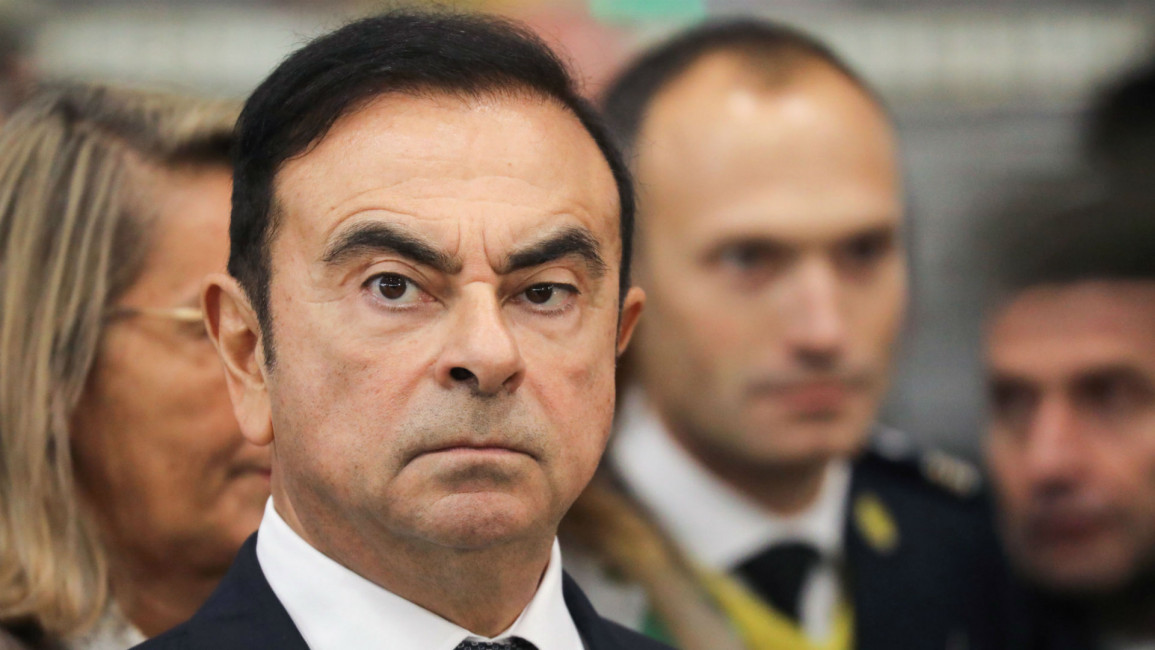Lebanese-French car tycoon gives his first interview following Japanese detention
Lebanese-French tycoon Carlos Ghosn said he believes his arrest and the charges against him are the result of a "plot and treason" at his former employer Nissan.
Japanese business daily Nikkei quoted Ghosn as saying he had "no doubt" that the charges against him were motivated by Nissan executives opposed to greater integration with its French alliance partner, Renault.
It was the first time Ghosn had been back since his shocking arrest on 19 November conducted in the Tokyo detention centre where he has languished ever since.
A Nissan spokesman hit back immediately, saying that current CEO Hiroto Saikawa has "already categorically refuted the notion of a coup d'etat".
"The sole cause of this chain of events is the misconduct led by Ghosn and (chief of staff Greg) Kelly," the spokesman added.
He said a Nissan probe had uncovered "substantial and convincing evidence of misconduct" and that the firm's focus is "firmly on addressing the weaknesses in governance" that allowed this misconduct to happen.
The 64-year-old Ghosn has been denied bail several times, due to the court concerned he could jump bail or destroy evidence.
But he again stressed that he "won't flee. I will defend (myself)", according to the Nikkei.
"All the evidence is with Nissan and Nissan forbids all employees to talk to me," he added.
He is unlikely to be released before he stands of trial, which could take up to six months to organise given the complexity of the case.
Ghosn faces three separate charges, all of which he denies - accused of under-reporting his income between 2010 and 2015 to the tune of five billion yen ($46 billion) and continuing to do so for a further three years.
He is also accused of passing off personal foreign exchange losses to Nissan and using company funds to reimburse a Saudi contact who stumped up collateral for him.
He said the payment to this businessman, Khaled Juffali, had been signed by "four officers".
Yet he is well-known if Japan for his turnaround of the struggling Nissan.
Current CEO Hiroto Saikawa has "already categorically refuted the notion of a 'coup d'etat'".
After Ghosn's arrest, Saikawa referred to the "dark side" of his former mentor's tenure and accused him of having accrued too much power.
But Ghosn rejected the characterisation of his tenure as a "dictatorship".
"People translated strong leadership to dictator, to distort reality," he told the Nikkei. They did so, he added, for the "purpose of getting rid of me".
Another accusation against him revolves around some $9 million allegedly paid to him from a joint venture based in The Netherlands but Ghosn rejected this, saying the claims of improper payments were "a distortion of reality".
He has also come under fire for luxury houses in Rio de Janeiro and Beirut - which Nissan alleges were paid for improperly via a subsidiary.
He justified these residences on the grounds that he "needed a safe place where (he) can work and receive people in both Brazil and Lebanon."
He stressed that the purchases were approved by the legal department.
During the interview, Ghosn said he was "up and down" in jail, but said his health was "fine."
Family members have said his detention conditions are overly difficult and even French President Emmanuel Macron has criticised them as "harsh".



